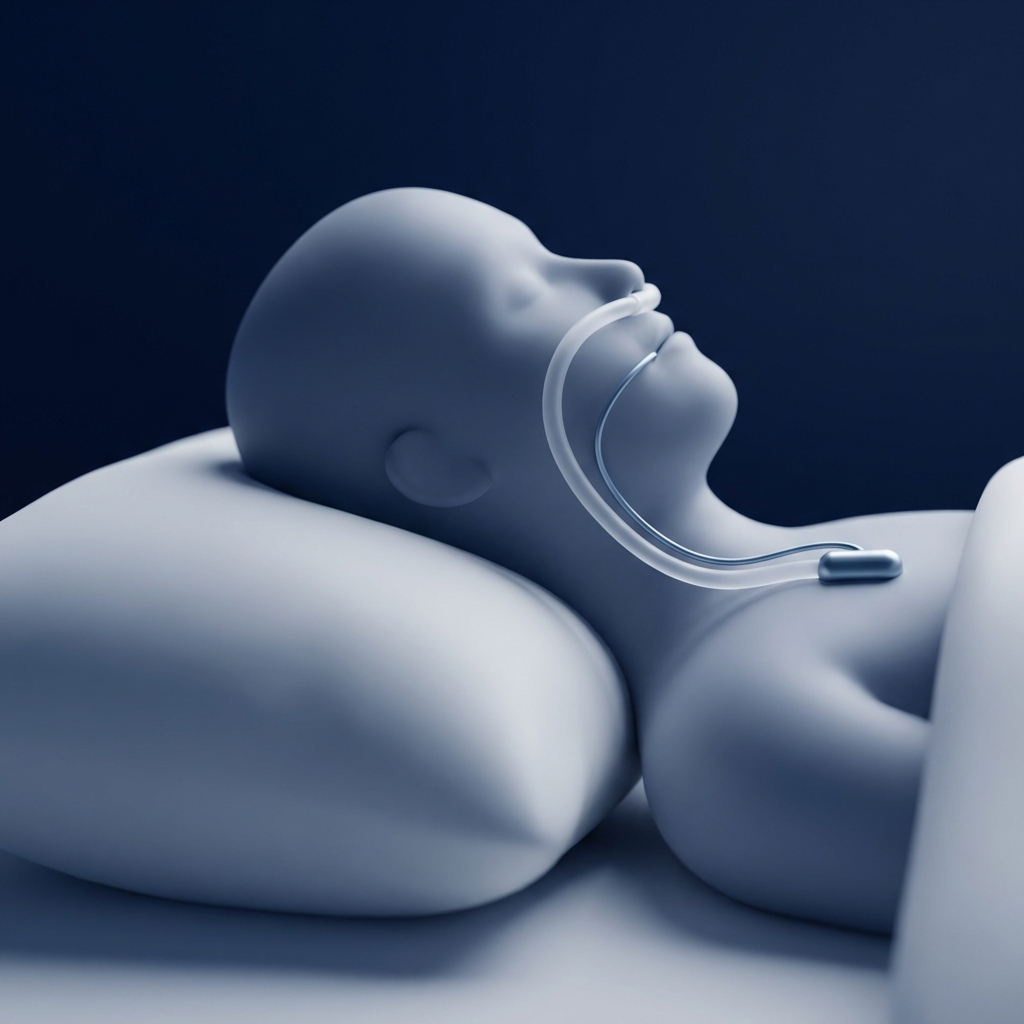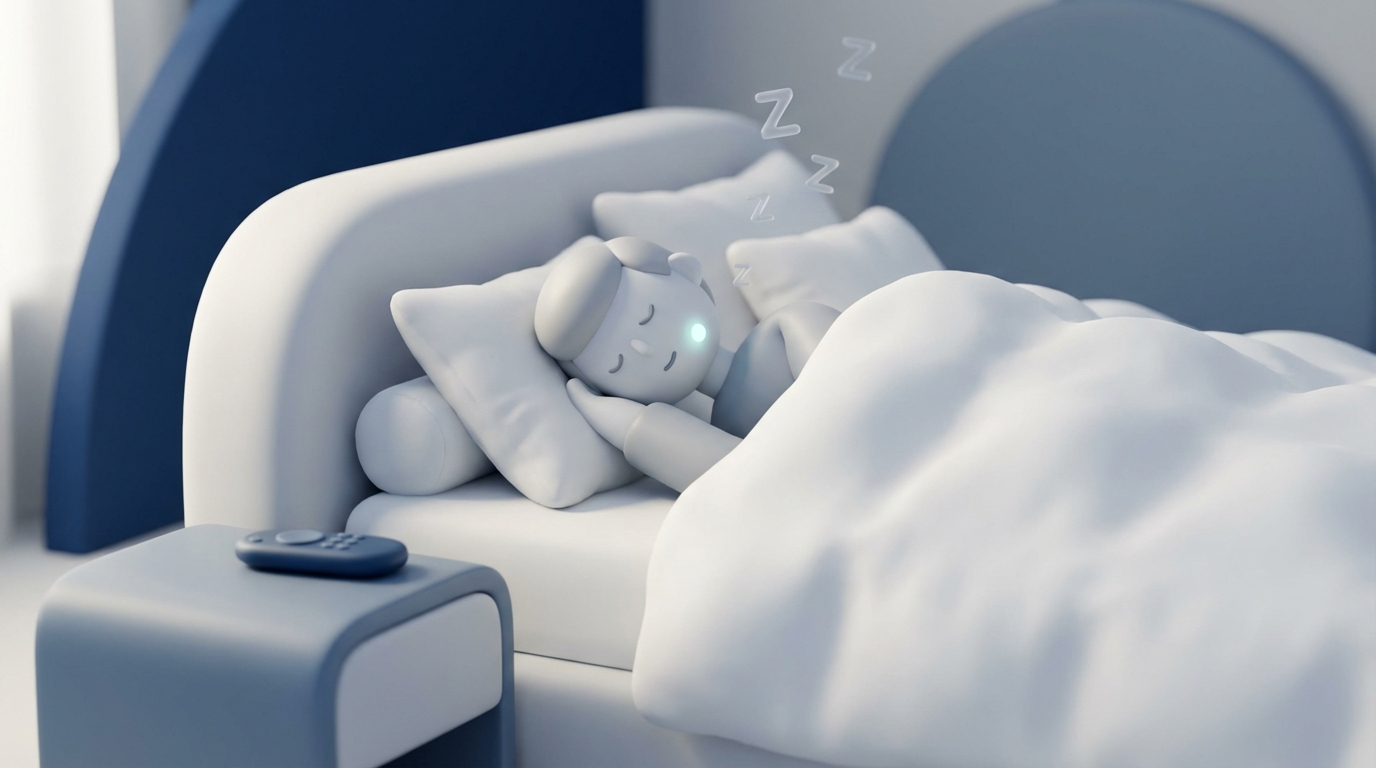Sleep Apnea and Morning Mood Disorders: Causes and Solutions
Waking up feeling groggy, irritable, or even downright blue isn’t just a minor annoyance—it could signal a deeper, often overlooked problem. Millions of Americans experience sleep apnea and related morning mood disorders, yet many may not realize that their restless, disrupted nights can contribute to emotional challenges during the day. If you find yourself dragging through mornings or waking up on the wrong side of the bed more often than not, it’s important to explore how your breathing during sleep might be silently affecting your mood, energy, and overall mental health.
In this expanded blog post, we’ll take a closer look at what sleep apnea really is, how it may disrupt mental well-being, the common symptoms that could hint it’s playing a role in your mood issues, and—most importantly—how you can take informed steps to reclaim restful sleep and brighter mornings. If you suspect you have sleep apnea or related symptoms, please consult a healthcare provider for proper diagnosis rather than self-diagnosing.
Introduction
What is Sleep Apnea?
Sleep apnea is a potentially serious sleep disorder characterized by repetitive pauses in breathing during sleep. The most prevalent form is Obstructive Sleep Apnea (OSA), which occurs when the muscles in the back of the throat excessively relax, causing partial or complete blockage of the airway. This blockage leads to brief pauses in breathing that can last for a few seconds or longer. Less common are Central Sleep Apnea, where the brain fails to send appropriate signals to breathe, and Complex Sleep Apnea, which combines elements of both.
To put this in perspective, an estimated 18 million Americans suffer from OSA, but many remain undiagnosed because symptoms can be subtle or mistaken for other issues. While loud, chronic snoring is a classic symptom, the true concern lies in the frequent breathing interruptions that fragment sleep and deprive the body—and brain—of oxygen. Over time, this pattern can impact not just physical health but also mental and emotional well-being. Sleep apnea may contribute to or worsen mood disorders, though these have multiple possible causes.
How Sleep Apnea May Impact Mental Health and Morning Mood
Sleep apnea’s effects extend far beyond daytime fatigue. Numerous studies have linked OSA with increased rates of depression, anxiety, irritability, and cognitive difficulties (NLM, Wesper). For many people, those early morning mood dips aren’t simply the result of a bad night or “Monday blues”—they may be symptoms rooted in disrupted sleep cycles and compromised oxygen delivery to the brain.
Imagine your brain trying to function after a night of repeated “micro-awakenings” and oxygen shortages—this is like running a car on low fuel while hitting multiple speed bumps. It’s no wonder that mental clarity, focus, and emotional stability often suffer. Recognizing this hidden connection is key to paving the way toward improved mood, higher energy, and better overall quality of life.
Causes of Sleep Apnea Affecting Mood
Airway Obstruction and Its Role
At the heart of OSA is airway obstruction during sleep. When the airway collapses or narrows due to relaxed throat muscles or anatomical factors such as enlarged tonsils or a thick neck, breathing momentarily stops. Each breathing pause triggers a brief arousal—sometimes barely noticeable—that forces the body to reopen the airway. These frequent interruptions may occur dozens or even hundreds of times per night.
This constant disruption prevents you from entering and maintaining deep, restorative stages of sleep essential for brain repair and emotional regulation. Like a computer constantly rebooting, your brain doesn’t get the downtime it needs, which impairs its ability to manage stress, mood, and memory effectively.
Sleep Fragmentation: The Hidden Culprit
Sleep fragmentation refers to the repeated breakdown of normal sleep architecture caused by these interruptions. Although you may think you slept “eight hours,” what really matters is how much of that sleep was uninterrupted and deep.
Research shows that sleep fragmentation resulting from OSA reduces time spent in slow-wave sleep and REM (rapid eye movement) sleep—both critical for emotional stability and cognitive function. As a result, people often wake up feeling emotionally fragile, easily irritated, or overwhelmed by daily stressors. Sleep fragmentation may play a significant role in morning mood disturbances.
Oxygen Deprivation and Brain Health
Another key factor driving mood problems in sleep apnea is intermittent hypoxia, or periodic drops in blood oxygen levels during apnea episodes. Even short bouts of low oxygen can cause inflammation and damage to brain regions involved in mood regulation, such as the hippocampus and prefrontal cortex (Fivestar Pulmonary Associates).
Oxygen deprivation also disrupts the balance of neurotransmitters, including serotonin—the brain’s “mood stabilizer.” Over time, this imbalance might manifest as depression, anxiety, and persistent brain fog, further fueling a downward spiral of mood and cognitive challenges. Intermittent hypoxia may contribute to emotional and cognitive symptoms seen in sleep apnea.
Symptoms of Morning Mood Disorders Linked to Sleep Apnea
Sleep apnea often masquerades as or aggravates mood disorders. These overlapping symptoms can make it difficult to diagnose the root cause, but understanding them can guide appropriate evaluation and treatment.
Depression and Anxiety
Research indicates that individuals with OSA are nearly three times more likely to develop depression and twice as likely to experience anxiety compared to those without sleep apnea (NLM). In many cases, untreated OSA intensifies existing mood symptoms, making it harder to greet each day with energy or optimism.
For example, some patients have described waking up feeling “hooded in a fog of sadness,” only to realize after sleep apnea treatment that these morning depressive feelings lifted significantly. It’s crucial to consider whether mood disturbances might be rooted in poor sleep before focusing solely on psychiatric treatment. Recognizing sleep apnea as a possible factor can open new pathways for relief.
Irritability and Emotional Dysregulation
The cumulative effect of broken sleep and oxygen drops can heighten emotional sensitivity. People with sleep apnea frequently report feeling irritable and having lower thresholds for frustration. According to sleep clinicians, this emotional dysregulation often leads to strained relationships and difficulty coping with everyday challenges, especially during mornings when mood is at its most vulnerable.
Fatigue, Daytime Sleepiness, and Cognitive Impairment
Daytime somnolence—excessive sleepiness—is a hallmark symptom of OSA. This fatigue goes beyond feeling tired; it affects mental sharpness, attention span, memory recall, and information processing speed. Many individuals liken it to navigating life “under a cloud of brain fog.”
The overlap of daytime fatigue, poor concentration, and low mood often mirrors clinical depression, leading to misdiagnosis or incomplete treatment if the underlying sleep apnea is overlooked. Understanding these overlapping symptoms can help guide appropriate evaluation.
Effective Solutions to Improve Sleep Apnea and Morning Mood
The good news is that addressing sleep apnea can lead to significant improvements in mood, daytime alertness, and cognitive function. Treatment restores healthier sleep patterns and oxygen flow, thereby lifting many emotional burdens. Individual responses to treatment vary; speak with your healthcare provider to determine the best approach for your condition.
Medical Treatments for Sleep Apnea
CPAP Therapy
Continuous Positive Airway Pressure (CPAP) therapy remains the gold standard for treating OSA. A CPAP machine delivers a constant stream of pressurized air through a mask, keeping the airway open throughout the night. This prevents breathing pauses and fragmentation, allowing for deeper, uninterrupted sleep.
Many patients report improvements in mood and energy within days to weeks of consistent CPAP use. A study cited by Wesper confirms significant reductions in depression and anxiety symptoms after CPAP treatment begins.
For those concerned about the cost or comfort of CPAP machines, options now exist with improved designs and more affordable pricing. Learn more in Affordable CPAP Machines: What to Look For.
Oral Appliances and Alternatives
Oral devices, typically customized mouthpieces that reposition the jaw or tongue, offer an effective alternative for people with mild to moderate OSA or those unable to tolerate CPAP. These appliances help keep the airway open by mechanically adjusting the position of oral structures during sleep.
Surgical Solutions or Advanced Therapies
For severe or anatomically complex cases that don’t respond to CPAP or oral devices, surgical interventions may be recommended. Procedures might include tissue removal, nasal surgery, or jaw realignment to clear airway obstruction.
ENT specialists can determine when surgery is appropriate; for guidance, see When to See an ENT for Sleep Problems.
Lifestyle Changes That Support Better Sleep and Mood
Alongside medical treatment, simple lifestyle adjustments can vastly improve sleep quality and mood:
- Prioritize sleep hygiene: Maintain a consistent sleep-wake schedule, and keep your bedroom environment dark, quiet, and cool.
- Manage weight: Even modest weight loss reduces airway obstruction, significantly improving apnea severity.
- Stay physically active: Regular exercise promotes deeper sleep and enhances mood.
- Avoid alcohol and sedatives near bedtime: These substances relax throat muscles and can worsen apnea episodes.
Because sinus congestion and allergies can exacerbate breathing difficulties, addressing these issues is also important. For more on related symptoms, visit Symptoms of Sinus Problems. Lifestyle adjustments combined with medical treatment provide the best chance for improved mood and sleep.
Mental Health Support and Therapy
- Cognitive Behavioral Therapy (CBT): CBT effectively treats insomnia and mood disorders and works well in combination with OSA treatment.
- Seek professional support: If symptoms of depression or anxiety persist after improving sleep, consulting a mental health professional is crucial. Timely psychological intervention can synergize with physical treatments for better overall outcomes.
Frequently Asked Questions (FAQs)
Q1: Can sleep apnea cause morning depression?
Absolutely. Sleep apnea disrupts deep restorative sleep and oxygen flow, significantly increasing the risk of morning depression and affecting emotional regulation throughout the day.
Q2: How soon can mood improve after starting CPAP?
Many users report improvements in mood and energy within days to a few weeks, though full psychological benefits often develop progressively over several months of consistent therapy.
Q3: Are women more affected by mood disorders related to sleep apnea?
Yes. Research suggests women with OSA face a higher risk of developing depression compared to men, possibly due to differences in hormonal influences and symptom presentation.
Q4: How to differentiate between sleep apnea symptoms and depression?
Symptoms such as fatigue, low mood, and poor concentration overlap. However, hallmark signs like loud snoring, witnessed breathing pauses, gasping for air during sleep, or unrefreshing sleep point toward sleep apnea and warrant professional evaluation.
Q5: What are the risks of untreated sleep apnea on mental health?
Untreated OSA can exacerbate depression and anxiety, impair cognitive function, and increase risks of serious medical conditions including hypertension, heart disease, and stroke.
Conclusion
You don’t have to resign yourself to foggy, irritable mornings as just “how life is.” The link between sleep apnea and morning mood disorders is strong, but both can be effectively managed. Early diagnosis and appropriate intervention may help boost mood, sharpen focus, and restore your zest for the day.
If you or a loved one experience symptoms of sleep apnea or persistent morning mood disturbances, don’t wait to seek professional help. Addressing sleep apnea may be the vital first step toward brighter mornings and improved mental health.
Begin your journey today by scheduling a comprehensive sleep evaluation at the Sleep and Sinus Centers of Georgia.
Book your appointment now and take the first step toward better sleep and brighter days.
Disclaimer:
This article is for educational purposes only and is not medical advice. Please consult a qualified healthcare provider for diagnosis and treatment.
References:
- Wesper: How Obstructive Sleep Apnea Fuels Mood Disorders
- National Library of Medicine: Sleep Apnea and Mood Disorders
- Fivestar Pulmonary: How Sleep Apnea Affects Your Energy and Mood
- Sleep Better NY: The Link Between Sleep Apnea and Mental Health
Helpful Links:
Don’t let allergies slow you down. Schedule a comprehensive ENT and allergy evaluation at Sleep and Sinus Centers of Georgia. We’re here to find your triggers and guide you toward lasting relief.


.jpg)





